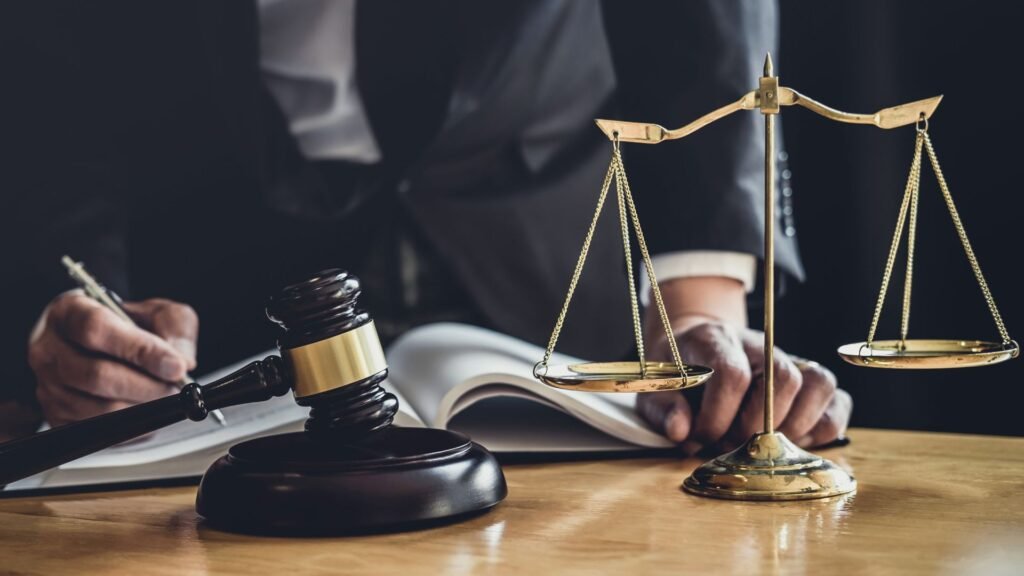Prescription Drug Charges in Georgia: Risks, Penalties, and Legal Defense
Prescription medications are often viewed as safe, especially when legally prescribed. But in Georgia, possessing or distributing prescription drugs without proper authorization can quickly lead to serious criminal charges. Many people don’t realize that even a minor mistake like carrying someone else’s medication can result in felony accusations.
Whether you’re a patient, caregiver, or simply caught in an unexpected legal situation, it’s important to understand the risks and realities of prescription drug laws in Georgia. Speaking with an experienced criminal defense lawyer in Cumming, Georgia can help you better understand your rights and what steps to take next. This guide explains how the law works, the potential consequences, and the actions you may want to consider if you’re ever facing such charges.

Legal Guidance Is Within Reach
In Cumming, Georgia, support is available for individuals facing legal trouble related to prescription medications. Whether you’re dealing with a misunderstanding or a more serious allegation, clear, confidential legal advice can help you make informed decisions and protect your future.
📍 For Guidance in Cumming, Georgia
Office Address: 2100 Westshore Drive, Suite 119, Cumming, GA 30041
📞 Call: (470) 505-9791
📧 Email: jennifer@lawofficeofjenniferscalia.com
What the Law Says About Prescription Drugs in Georgia
Georgia classifies many prescription medications—like opioids, stimulants, and anti-anxiety drugs—as controlled substances. That means they are regulated under both state and federal drug laws. While this content focuses on Georgia laws, it’s important to note that drug charges in Florida work similarly when it comes to controlled substances. Some common examples include:
- Oxycodone (OxyContin)
- Hydrocodone (Vicodin)
- Alprazolam (Xanax)
- Adderall and Ritalin
- Codeine-based cough syrups
It’s illegal to possess these medications without a valid prescription issued by a licensed provider. It’s also a crime to distribute, sell, or share prescription drugs, even if you’re not profiting from it.
Common Situations That Lead to Charges
Many people are surprised to find themselves facing legal trouble over prescription medication. The following situations, while often unintentional, can still lead to criminal charges:
- Carrying pills without a prescription bottle
- Sharing medication with a friend or family member
- Using someone else’s prescription for legitimate pain
- Forging or altering prescriptions
- Driving under the influence of prescribed narcotics
Even if your intentions were not criminal, Georgia law does not always take intent into account during an arrest.
What Are the Potential Charges?
Depending on the circumstances, prescription drug-related offenses in Georgia may be charged as:
- Possession of a controlled substance
- Possession with intent to distribute
- Prescription fraud
- Doctor shopping
Many of these are felony charges, which can carry harsh penalties including:
- Up to 10 years in prison
- Thousands of dollars in fines
- Mandatory rehabilitation or treatment programs
- Probation or community service
- A permanent criminal record
Additionally, a conviction can affect your ability to find employment, qualify for housing, or retain professional licenses.
Special Considerations for First-Time Offenders
Georgia courts may offer diversion programs or alternative sentencing options for individuals with no prior criminal history. However, these options aren’t guaranteed and may depend on:
- The type and amount of drug involved
- Whether any intent to distribute is alleged
- The accused’s criminal record
- Whether the offense occurred near a school or in a protected zone
Seeking early legal advice can help identify whether alternatives to conviction—such as conditional discharge or pretrial diversion—are available in your specific case.
How Prescription Drug DUIs Work in Georgia
Driving under the influence of prescription drugs is another area where many people unintentionally break the law. Georgia’s DUI laws don’t just apply to alcohol—they also apply to any substance that impairs your ability to drive, including legally prescribed medications.
If you take painkillers, anti-anxiety drugs, or muscle relaxants and get behind the wheel, you may be charged with DUI even if you were using the drug exactly as prescribed. Officers often rely on field sobriety tests or blood tests to support these charges.
Understanding the risks associated with driving while on medication is key to avoiding legal trouble.
Suggested Steps If You’re Facing Charges
Being charged with a prescription drug offense can be overwhelming—but how you respond can shape the outcome. Here are a few suggestions if you or someone you know is in this situation:
- Avoid discussing the case with anyone except legal counsel.
Anything said to friends, family, or on social media can be used in court. - Secure medical records and prescription details.
Documentation can support the legitimacy of your medication use. - Do not assume the charges are minor.
Many prescription drug crimes are felonies under Georgia law and should be taken seriously. - Educate yourself about the legal process.
Understanding your rights and the charges against you is the first step toward a strong defense. - Speak with someone familiar with Georgia drug laws.
Having local knowledge can make a major difference in navigating the legal system effectively.
📍 For Guidance in Cumming, Georgia
Office Address: 2100 Westshore Drive, Suite 119, Cumming, GA 30041
Call: (470) 505-9791
Email: jennifer@lawofficeofjenniferscalia.com
Prescription drug laws in Georgia are often misunderstood, even by those who use medication responsibly. But misunderstanding the law doesn’t protect you from its consequences. Charges related to controlled medications can result in lasting damage to your record and reputation—unless handled properly.
Frequently Asked Questions (FAQs)
Q1: Can I be arrested for carrying prescription pills without the original bottle?
Yes. In Georgia, if you’re found with prescription medication outside of its labeled container and can’t prove it’s legally prescribed to you, you may be charged with illegal possession.
Q2: Is it illegal to give my prescribed medication to a friend who’s in pain?
Yes. Even if done out of kindness, sharing prescription medication is considered unlawful distribution under Georgia law.
Q3: What should I do if I’ve been charged but have a valid prescription?
Collect your prescription documentation and medical records. Then, seek guidance from someone familiar with drug defense laws in Georgia. They can help you present your case effectively.




